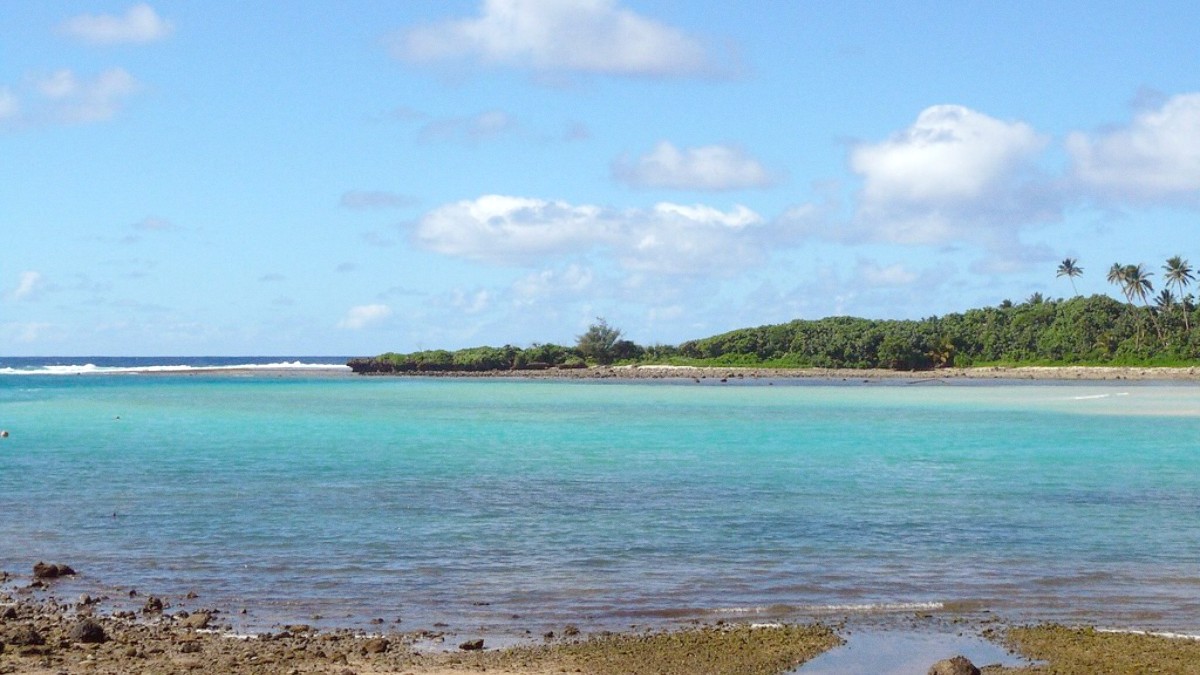
Rarotonga And The Cook Islands
Dry Season (Winter): This season runs from May to October. Average daytime temperatures range from 20-26°C (68-79°F). Humidity levels are lower, and rainfall is less frequent and generally lighter. Days are mostly sunny, with clear skies. Evenings can be cooler, sometimes dropping to 18-20°C (64-68°F), making for comfortable sleeping and outdoor dining. This period is popular for agreeable weather, ideal for exploring and relaxing without intense heat.
Wet Season (Summer): This season extends from November to April. Average temperatures are higher, ranging from 22-29°C (72-84°F). Humidity increases significantly, often feeling tropical and sticky. Rainfall is more frequent and heavier, often occurring in short, intense bursts, followed by sunshine. While it rains more, the sun still shines for many hours each day. The landscape becomes very lush and green during this period.
High Season (July-August, December-January): Ideal weather, calm ocean. Whale watching from July-October. Higher demand, increased prices for flights and accommodation. Resorts and attractions become more crowded. Booking well in advance, sometimes 6-12 months ahead, is necessary.
Shoulder Season (May-June, September-November): Good balance. Weather remains pleasant, with less humidity. Crowd levels are lower, leading to a more relaxed atmosphere. Prices for flights and accommodation are often slightly lower, offering better value. Early May and late October can be appealing.
Peak of wet season
Lowest prices for flights and accommodation, offering best value. Fewer tourists, quiet beaches, truly relaxed pace.
High humidity. Frequent, sometimes heavy rainfall. Risk of tropical cyclones. Some smaller operations may reduce hours.
During wet season
Plan activities for mornings and late afternoons. Seek air-conditioned spaces or shade. Hydration is .
Can make air feel heavy and sticky. Uncomfortable for some travelers.
Consistent year-round
Always use high-SPF sunscreen, wear a hat, and seek shade during peak sun hours (10 AM - 4 PM).
Very strong sun due to proximity to the equator. Sunburn common.
Water clarity is generally excellent year-round within the lagoon for snorkeling and diving. Conditions outside the reef for diving are often calmer and clearer during the dry season (May-October).
The dry season (May-October) yields the most comfortable temperatures and less muddy trails, especially for the Cross-Island Trek. Wet season hiking can be more challenging due to slippery conditions. Many of Rarotonga's major cultural festivals, like Te Maeva Nui, occur during the dry season (late July/early August).
Excellent year-round in lagoon, calmer outside reef in dry season.
Dry season (May-Oct) for comfortable temperatures, less mud.
July to October, humpback whales migrate through waters.
Many major festivals, including Te Maeva Nui, in dry season (late July/early Aug).
Risk from November-April, highest from Jan-March. Monitor forecasts.
The Cook Islands maintain a straightforward visa policy, making it simple for most visitors to enter.
The Cook Islands operate a visa-free policy for visitors staying up to 31 days. This applies to a wide range of nationalities, including citizens of the USA, Canada, United Kingdom, Australia, New Zealand, and most European Union countries. A visa is not necessary for short tourist visits.
Upon arrival, be prepared to present the following documents for smooth entry:
The New Zealand Dollar (NZD) is the local currency. Rarotonga has options for every budget, from cost-conscious travelers to those seeking luxury.
Maximize your budget with these tips for Rarotonga:
Awareness of common health concerns assists in preventing issues during your stay.
Use high-SPF, broad-spectrum, reef-safe sunscreen (At least SPF 30), reapply often. Wear a Wide-brimmed hat, Sunglasses, and rash guard. Stay hydrated. Sun protection is constant.
Dengue fever is present. Use Insect repellent containing DEET or Picaridin, especially at dawn and dusk. Wear Long-sleeved shirts and long pants. Ensure screens on windows or use mosquito nets.
Minor cuts, especially from coral, can become infected. Wear Water shoes or reef walkers. Clean any cuts immediately with antiseptic and apply antibiotic ointment. Monitor for infection.
Drinking Water Safety:
Tap water is generally not safe to drink without boiling or filtering. Many accommodations provide filtered water for guests to refill reusable bottles. This is the recommended approach. Consider bringing a Portable water filter bottle or purification tablets for venturing to remote areas.
Access to Healthcare: Rarotonga Hospital in Avarua is the main medical facility. For serious conditions, medical evacuation to New Zealand may be necessary. Travel insurance is very important. Several private clinics and limited pharmacies exist.
Emergency Services: Dial 999 for Police/Ambulance/Fire. Rarotonga Hospital: +682 20 000.
Rarotonga has a very low crime rate. It is a safe destination for tourists. Petty theft, like bags left unattended, can occur. Violent crime is rare.
Secure valuables in accommodation's safe. Do not leave bags unattended on beaches or in rental vehicles. Lock accommodation, even when inside. Exercise caution walking or cycling on roads at night (poor lighting).
There are no specific "no-go" neighborhoods on the island. Local authorities maintain public safety across Rarotonga.
Be aware of potential natural hazards:
Travel insurance is highly recommended for any trip to Rarotonga. Your policy should cover:
Covers doctor visits, hospital stays, and prescription medications. Medical evacuation to New Zealand may be necessary for serious conditions, which is costly without insurance.
Trip Cancellation or Interruption: Covers unforeseen events (illness, family emergencies, natural disasters) causing trip cancellation or curtailment.
Lost Luggage and Personal Belongings: Compensation if bags are lost, delayed, or stolen. Adventure Activities: Confirm your policy covers diving, hiking, or other adventure sports.